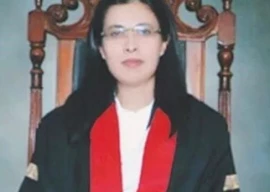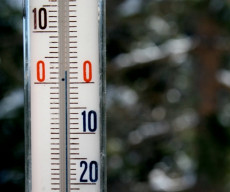
After enduring months of relentless aggression and suffering, the people of Gaza have been given a glimmer of hope through a ceasefire agreement between Israel and Hamas.
This fragile truce, brokered after immense Palestinian suffering, aims to address the immediate humanitarian crisis caused by the ongoing Israeli military operations. While the agreement is a step forward, it remains a temporary reprieve in a long struggle for Palestinian freedom and justice.
The ceasefire outlines a phased approach to easing tensions. The terms of the ceasefire may offer a short-term relief: the release of Palestinian prisoners and hostages, the promise of increased humanitarian aid, and a partial withdrawal of Israeli forces.
For Gaza, where every corner has felt the weight of bombs, blockades, and oppression, these provisions bring a much needed respite. But they are not enough. They do not address the root cause of the conflict including the ongoing occupation, the denial of self-determination, and the systemic violation of Palestinian rights.
Palestinians deserve more than temporary palliative measures; they deserve a lasting resolution that secures their freedom, their dignity, and their future.
Central to understanding this ceasefire is the legal framework of jus ad bellum (the right to go to war) and jus in bello (laws applicable during war). The ceasefire does not end the illegal occupation of Palestinian land; it merely suspends the active hostilities.
Under international law, occupation itself is not resolved by a ceasefire, as it requires the withdrawal of occupying forces and the restoration of governance to the rightful authorities. Therefore, the Palestinian struggle for self-determination continues unabated, as the ceasefire does not address the root cause of the conflict—Israel's ongoing occupation and violations of Palestinian sovereignty.
Article 40 of the Hague Regulations permits the resumption of hostilities if a ceasefire is seriously violated. Although Israel has not ratified the Hague Convention, the principle is considered customary international law.
This means that Israel is still bound by this provision, which is universally recognized and has become part of the legal fabric that governs armed conflicts.
But Israel’s track record raises grave concerns. The pattern is all too familiar: Israel invokes the right to self defense as a pretext for continuing or escalating military action, even when such force is disproportionate or unjustified.
In the past, Israel has used minor incidents or unverified claims as excuses for large scale operations, with devastating consequences for Palestinian civilians.
The risk is clear, Israel could once again hide behind the shield of "self defense" to justify breaking the ceasefire, continuing its military campaign, and causing further destruction.
In this critical moment, the responsibility of mediators i.e. Egypt, Qatar, and the United States, cannot be overstated. These nations have played pivotal roles in facilitating the ceasefire agreement, and they must now ensure its implementation and push for further steps toward a just resolution.
Egypt and Qatar, as regional powers with strong ties to Gaza, have a unique obligation to advocate for the end of the blockade and occupation, ensuring that the humanitarian needs of Palestinians are met and their rights are respected.
However, history has shown that without sustained international pressure and accountability, Israel has repeatedly violated agreements with impunity.
The international community must do more than monitor the situation; it must hold Israel accountable for its actions and support Palestinian calls for justice and self-determination.
Should Israel resume military operations under the guise of self defense, it could face severe consequences under international law. The continued targeting of civilians and civilian infrastructure would likely trigger investigations into war crimes by bodies such as the International Criminal Court.
Diplomatic isolation and sanctions could follow, signaling the world’s rejection of Israel’s violations and strengthening the Palestinian call for justice. However, these legal and diplomatic repercussions will only have real impact if the international community remains resolute in its commitment to Palestinian rights and the rule of law.
While the ceasefire offers a brief respite for the people of Gaza, it does not address the root causes of their suffering. True peace can only be achieved through justice, ending the occupation, lifting the blockade, and recognizing the rights of Palestinians to live in freedom and dignity.
The ceasefire is a momentary pause in a long struggle, but the fight for Palestinian liberation continues, driven by the unwavering resilience of its people and their demand for justice in the face of oppression.
1737379103-0/BeFunky-collage-(11)1737379103-0-405x300.webp)


1737375427-0/taylor-(16)1737375427-0-165x106.webp)
1737373924-0/fizza-(59)1737373924-0-165x106.webp)





1735905838-0/Express-Tribune-(8)1735905838-0-270x192.webp)
1737188551-0/Untitled-design-(97)1737188551-0-270x192.webp)
1737185197-0/Express-Tribune-(2)1737185197-0-270x192.webp)










COMMENTS
Comments are moderated and generally will be posted if they are on-topic and not abusive.
For more information, please see our Comments FAQ